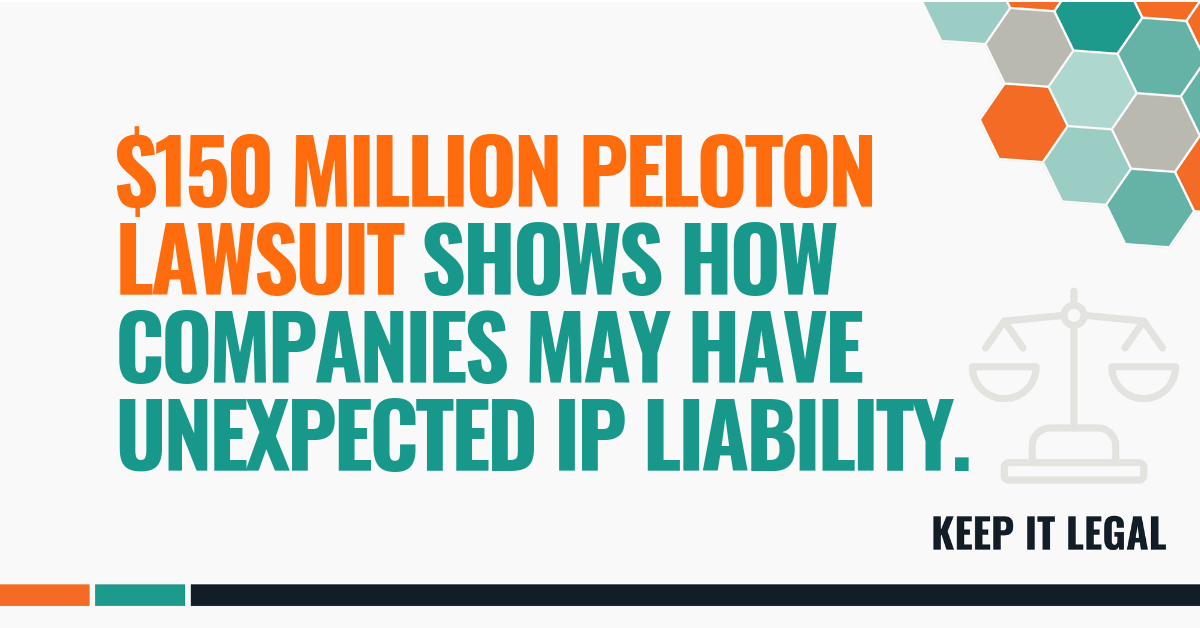Peloton is the manufacturer of a wildly popular home exercise bike that includes the ability to stream exercise classes. The company is heading towards an IPO at a roughly $8 billion valuation, so it’s safe to say this product – and the streaming service – is a hit.
So is Peloton primarily a company that manufactures and sells fitness products, or are they an entertainment/media company? Businesses that are entering the market with products that include a streaming media component need to think of themselves as being in both worlds.
In March 2019, several major music publishers filed a lawsuit against Peloton, alleging that the company failed to secure the proper licenses for over 1,000 songs played on its streaming service. The full complaint can be read here. The publishers are seeking in excess of $150 million in damages for the unauthorized streaming of hits by artists such as Bruno Mars, Cardi B, Justin Bieber, Katy Perry, and a who’s who of pop hitmakers from the 70s through today.
If you’ve ever been in a gym, you know that there is always some kind of music in the background. Playing popular music in a gym (or a store, restaurant, or similar public place) requires what’s called a public performance license. But Peloton wasn’t just playing music – their devices play songs along with visual content. This requires a synchronization (or “sync”) license.
The complaint states: “A synchronization license allows the licensee lawfully to reproduce a protected work ‘in connection with’ or ‘in timed relation with’ a visual image, such as videos that Peloton records, archives and makes available to its customers. On information and belief, Peloton entered into sync licenses with owners of certain other musical works while inexplicably and unlawfully using the musical works of Plaintiffs over a period of years without license or recompense.”
Following the lawsuit, Peloton pulled a number of songs from its service. A recent article in The Verge reports that Peloton users are unhappy about the change: “Peloton customers now say they have noticed a significant downgrade in music quality, with remixed versions of a popular song instead of an original, or limited song variety from an artist. Users also note that classes they’ve favorited have disappeared from the catalog, since they contain songs that were named by the lawsuit as having violated copyrights.”
This story goes to show that all kinds of companies, including those that manufacture consumer products, need to be thinking ahead about potential intellectual property issues. The Peloton founders have a huge hit on their hands – the last thing they need to deal with as they prepare to take the company public is a substantial copyright lawsuit.
Wondering whether your company has intellectual property issues? Get in touch.


